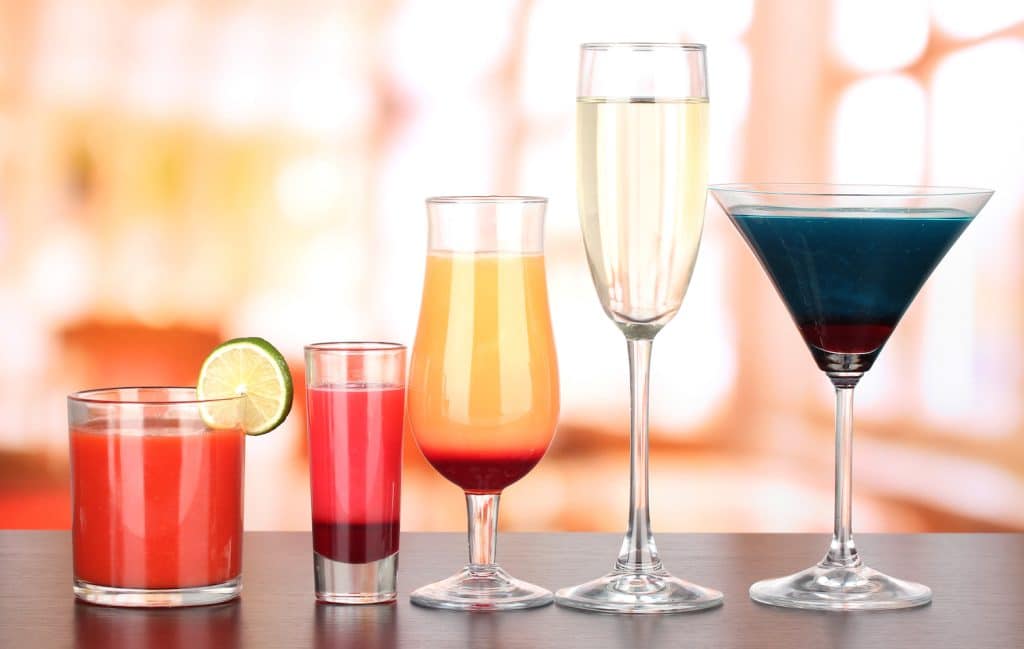
Key Takeaways
- There is no miracle food or drink that leads to the perfect night’s rest.
- Eating dinner too close to bedtime may interfere with sleep.
- Being tired increases the urge to snack on high-calorie foods.
- Foods like milk, fatty fish, and certain fruits may help increase the quality of sleep at night.
- Caffeine, alcohol, and foods that cause reflux can cause sleep disturbances and changes to your sleep cycle.
Sleep is right up there with diet and exercise when it comes to getting healthy.
But a bad night’s sleep causes more problems than grogginess, especially if you’re on a weight loss journey. Lack of shuteye affects your mood, metabolism, and even the foods you crave.
“Many things can affect how well you sleep, and what you eat is a big one,” says registered dietician Erin Palinski-Wade.
You can eat different foods to help you sleep, but when you eat is just as important, she says. “One helpful change can be meal timing.”
Palinski-Wade says that chrono-nutrition, or the impact of food and meal timing on sleep-wake cycles, is a hot topic in nutrition research.
Turns out, when mealtimes are out of sync with circadian rhythms, it can lead to poor digestion, which can interfere with sleep. Preliminary research suggests that eating dinner less than three hours before bedtime can lead to poor sleep quality.
The relationship between food and sleep is complex. There’s no magic snack that will put you out like a sleeping pill, but there are dietary tweaks you can make to help you get better rest.
Here’s what you need to know, according to Palinski-Wade and scientific research.
The Food, Sleep, Weight Connection
There are definitely foods that tend to keep you awake. And there’s a good reason to know what they are—poor sleep can make it harder to lose weight. Here’s what the research says:
What Foods Should You Avoid Right Before Bedtime?
Let’s take a look at the food and drink that can disrupt your sleep before moving on to the sleep-enhancing menu.


Top 5 Foods That Could Help You Sleep Better
Despite what TikTok influencers may promise, there’s no proof that any food or drink will send you right off to dreamland.
But research does suggest that some foods can increase the likelihood of getting a good night’s rest.
1. Tart Cherry Juice
“A pilot study demonstrated that, when consumed twice daily, fresh tart cherry juice effectively reduced the time it took to fall asleep and may be partially responsible for improvement in insomnia in people over 50 years of age,” Palinski-Wade explains.
That’s probably because tart cherries help with the production of melatonin. Melatonin is a hormone that your body produces when it starts to get dark. It causes sleepiness and helps you drift off.
While the research remains limited, if you’ve been struggling to get to sleep, adding tart cherry juice to your routine might help. You can mix it with seltzer if you want a little sparkle to offset the tartness.
2. Kiwifruit
Another fruit that might improve sleep is kiwifruit. “It’s a good source of serotonin,” says Palinski-Wade.
Serotonin is a neurotransmitter that plays a role in controlling behavior, mood, and memory. Higher production of serotonin plays a role in the sleep-wake cycle. Your body needs it to make sleep-inducing melatonin.
3. Tryptophan-Rich Foods
You’ve probably heard of tryptophan. It’s a hormone that’s been (misguidedly) associated with Thanksgiving turkey and post-Thanksgiving naps.
Even if turkey isn’t a sleep cure, that doesn’t mean foods with higher tryptophan levels can’t help with sleep. “Tryptophan-rich foods like whole grains, milk, and a high-protein diet containing tryptophan may assist in improving sleep outcomes,” says Palinski-Wade.
Fun fact: MyFitnessPal has one of the largest food databases, with over 19 million foods. Start tracking your bedtime snacks on the app!
4. Fatty Fish and Seafood
Fatty fish like salmon can be a sleep-promoting food. Fatty fish is rich in vitamin D. This is important because vitamin D deficiency can adversely affect sleep.
Plus, fish is high in omega-3 fatty acids. Preliminary research suggests there’s a connection between low levels of omega-3 fatty acids and sleep problems.
5. Milk and Dairy Products
Dairy is another food with melatonin (and/or tryptophan), so a glass of warm milk or some cheese during the day might help you drift off. One study of hospital patients found that people who drank warm milk mixed with honey for three days noticed improvements in sleep.
The Bottom Line
If you’re looking for a way to get more rest, making a few key dietary changes may help. Stay away from foods and drinks that keep you awake, look for foods with natural sleep-promoting properties, and try not to eat dinner too close to bedtime.
One way to learn more about what affects your sleep is the MyFitnessPal sleep function. This in-app sleep feature integrates sleep data from Health Connect by Android and Apple Health.
All you need to do is check your sleep data each morning. The app will show you how much sleep you got and whether you had trouble falling asleep or staying asleep.
Then, you can look at the meals you logged that day to see if food may have affected your sleep quality. Over time, you’ll be able to identify foods to promote sleep and change your diet habits to improve your sleep.
If you’re ready to improve your sleep and reach your health goals, connect your sleep tracker today.






